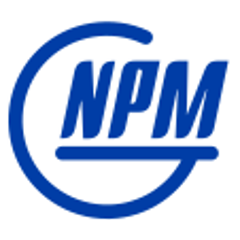KMath
Could be pronounced as key-math. The Kotlin Mathematics library was initially intended as a Kotlin-based analog to Python's NumPy library. Later we found that kotlin is much more flexible language and allows superior architecture designs. In contrast to numpy and scipy it is modular and has a lightweight core. The numpy-like experience could be achieved with kmath-for-real extension module.
Publications and talks
- A conceptual article about context-oriented design
- Another article about context-oriented design
- ACAT 2019 conference paper
Goal
- Provide a flexible and powerful API to work with mathematics abstractions in Kotlin-multiplatform (JVM, JS and Native).
- Provide basic multiplatform implementations for those abstractions (without significant performance optimization).
- Provide bindings and wrappers with those abstractions for popular optimized platform libraries.
Non-goals
- Be like NumPy. It was the idea at the beginning, but we decided that we can do better in terms of API.
- Provide the best performance out of the box. We have specialized libraries for that. Need only API wrappers for them.
- Cover all cases as immediately and in one bundle. We will modularize everything and add new features gradually.
- Provide specialized behavior in the core. API is made generic on purpose, so one needs to specialize for types, like for
Doublein the core. For that we will have specialization modules likekmath-for-real, which will give better experience for those, who want to work with specific types.
Features and stability
KMath is a modular library. Different modules provide different features with different API stability guarantees. All core modules are released with the same version, but with different API change policy. The features are described in module definitions below. The module stability could have following levels:
- PROTOTYPE. On this level there are no compatibility guarantees. All methods and classes form those modules could break any moment. You can still use it, but be sure to fix the specific version.
- EXPERIMENTAL. The general API is decided, but some changes could be made. Volatile API is marked with
@UnstableKmathAPIor other stability warning annotations. - DEVELOPMENT. API breaking genrally follows semantic versioning ideology. There could be changes in minor versions, but not in patch versions. API is protected with binary-compatibility-validator tool.
- STABLE. The API stabilized. Breaking changes are allowed only in major releases.
Modules
Maturity: EXPERIMENTAL
Maturity: PROTOTYPE
Features:
- expression-language : Expression language and its parser
- mst : MST (Mathematical Syntax Tree) as expression language's syntax intermediate representation
- mst-building : MST building algebraic structure
- mst-interpreter : MST interpreter
- mst-jvm-codegen : Dynamic MST to JVM bytecode compiler
- mst-js-codegen : Dynamic MST to JS compiler
Maturity: EXPERIMENTAL
Complex numbers and quaternions.
Maturity: PROTOTYPE
Features:
- complex : Complex Numbers
- quaternion : Quaternions
Core classes, algebra definitions, basic linear algebra
Maturity: DEVELOPMENT
Features:
- algebras : Algebraic structures like rings, spaces and fields.
- nd : Many-dimensional structures and operations on them.
- linear : Basic linear algebra operations (sums, products, etc.), backed by the
SpaceAPI. Advanced linear algebra operations like matrix inversion and LU decomposition.- buffers : One-dimensional structure
- expressions : By writing a single mathematical expression once, users will be able to apply different types of objects to the expression by providing a context. Expressions can be used for a wide variety of purposes from high performance calculations to code generation.
- domains : Domains
- autodif : Automatic differentiation
Maturity: EXPERIMENTAL
Maturity: PROTOTYPE
Maturity: PROTOTYPE
Extension module that should be used to achieve numpy-like behavior. All operations are specialized to work with
Doublenumbers without declaring algebraic contexts. One can still use generic algebras though.Maturity: EXPERIMENTAL
Features:
- RealVector : Numpy-like operations for Buffers/Points
- RealMatrix : Numpy-like operations for 2d real structures
- grids : Uniform grid generators
Functions and interpolation
Maturity: PROTOTYPE
Features:
- [piecewise](kmath-functions/Piecewise functions.) : src/commonMain/kotlin/kscience/kmath/functions/Piecewise.kt
- [polynomials](kmath-functions/Polynomial functions.) : src/commonMain/kotlin/kscience/kmath/functions/Polynomial.kt
- [linear interpolation](kmath-functions/Linear XY interpolator.) : src/commonMain/kotlin/kscience/kmath/interpolation/LinearInterpolator.kt
- [spline interpolation](kmath-functions/Cubic spline XY interpolator.) : src/commonMain/kotlin/kscience/kmath/interpolation/SplineInterpolator.kt
Maturity: PROTOTYPE
Maturity: PROTOTYPE
Maturity: PROTOTYPE
An API and basic implementation for arranging objects in a continous memory block.
Maturity: DEVELOPMENT
ND4J NDStructure implementation and according NDAlgebra classes
Maturity: EXPERIMENTAL
Features:
- nd4jarraystructure : NDStructure wrapper for INDArray
- nd4jarrayrings : Rings over Nd4jArrayStructure of Int and Long
- nd4jarrayfields : Fields over Nd4jArrayStructure of Float and Double
Maturity: EXPERIMENTAL
Maturity: DEVELOPMENT
Multi-platform support
KMath is developed as a multi-platform library, which means that most of the interfaces are declared in the common source sets and implemented there wherever it is possible. In some cases, features are delegated to platform-specific implementations even if they could be provided in the common module for performance reasons. Currently, the Kotlin/JVM is the primary platform, however Kotlin/Native and Kotlin/JS contributions and feedback are also welcome.
Performance
Calculation performance is one of major goals of KMath in the future, but in some cases it is impossible to achieve both performance and flexibility.
We expect to focus on creating convenient universal API first and then work on increasing performance for specific cases. We expect the worst KMath benchmarks will perform better than native Python, but worse than optimized native/SciPy (mostly due to boxing operations on primitive numbers). The best performance of optimized parts could be better than SciPy.
Repositories
Release and development artifacts are accessible from mipt-npm Space repository https://maven.pkg.jetbrains.space/mipt-npm/p/sci/maven (see documentation of Kotlin Multiplatform for more details). The repository could be reached through repo.kotlin.link proxy:
repositories {
maven("https://repo.kotlin.link")
}
dependencies {
api("space.kscience:kmath-core:0.3.0-dev-2")
// api("space.kscience:kmath-core-jvm:0.3.0-dev-2") for jvm-specific version
}
Gradle 6.0+ is required for multiplatform artifacts.
Contributing
The project requires a lot of additional work. The most important thing we need is a feedback about what features are required the most. Feel free to create feature requests. We are also welcome to code contributions, especially in issues marked with waiting for a hero label.

